 Religion
Religion  Religion
Religion  Weird Stuff
Weird Stuff 10 Horrifying Final Destination-Like Accidents
 Movies and TV
Movies and TV 10 Music Biopics That Actually Got It Right
 History
History 10 Momentous Events That Also Occurred on July 4th
 Animals
Animals 10 Times Desperate Animals Asked People for Help… and Got It
 Movies and TV
Movies and TV 10 Movie Flops That Found Their Way to Cult Classic Status
 History
History 10 Things You Never Knew About Presidential First Ladies
 Movies and TV
Movies and TV 10 Zombie Movies That Will Actually Terrify You
 Humans
Humans 10 Times Scientists Were Absolutely Sure… and Absolutely Wrong
 Our World
Our World 10 Pivotal Moments for Life on Earth
 Religion
Religion 10 Innovations and Discoveries Made by Monks
 Weird Stuff
Weird Stuff 10 Horrifying Final Destination-Like Accidents
 Movies and TV
Movies and TV 10 Music Biopics That Actually Got It Right
Who's Behind Listverse?

Jamie Frater
Head Editor
Jamie founded Listverse due to an insatiable desire to share fascinating, obscure, and bizarre facts. He has been a guest speaker on numerous national radio and television stations and is a five time published author.
More About Us History
History 10 Momentous Events That Also Occurred on July 4th
 Animals
Animals 10 Times Desperate Animals Asked People for Help… and Got It
 Movies and TV
Movies and TV 10 Movie Flops That Found Their Way to Cult Classic Status
 History
History 10 Things You Never Knew About Presidential First Ladies
 Movies and TV
Movies and TV 10 Zombie Movies That Will Actually Terrify You
 Humans
Humans 10 Times Scientists Were Absolutely Sure… and Absolutely Wrong
 Our World
Our World 10 Pivotal Moments for Life on Earth
10 Mind-Blowing Things That Happened This Week (7/20/18)
Keeping up with the news is hard. So hard, in fact, that we’ve decided to save you the hassle by rounding up the most significant, unusual, or just plain old mind-blowing stories each week.
This week was the antithesis of its companion exactly one month ago when President Trump made positive headlines around the globe for his summit with North Korea’s Kim Jong Un. His Monday summit with Vladimir Putin in Finland sparked the sort of controversy that is rare even for such a “shoot-from-the-hip” style of president. More on this below along with all the stuff you might have missed while the news was focused on Helsinki.
10 The Trump-Putin Summit Exploded Into Controversy
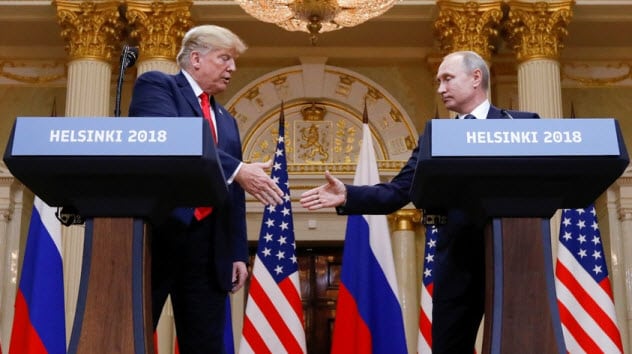
So, we can probably agree that was a little strange. On Monday, President Trump wrapped up his European tour by holding a summit with Vladimir Putin in Helsinki. It was billed in advance as a new page in US-Russia relations—a kind of Eastern European version of Trump’s North Korea summit in June. If the president was hoping to repeat that success, though, he was outta luck. Monday’s meeting became a political nightmare.
The problem arose when Russia’s alleged election meddling was raised. Director of National Intelligence Dan Coats (a Trump pick) has claimed that Russia interfered in the 2016 election. When asked about this, President Trump appeared to side with Moscow by saying:
“I have President Putin; he just said it’s not Russia. I will say this: I don’t see any reason why it would be.”
The president later claimed that he’d misspoken, accidentally omitting an additional negative (“wouldn’t” instead of “would”). But the damage was done. The summit brought rare negative coverage from Trump-leaning outfits like Fox News and Drudge Report and a bipartisan movement in the Senate to hit Russia with additional sanctions.[1]
9 Britain’s Official Vote Leave Campaign Was Referred To The Police
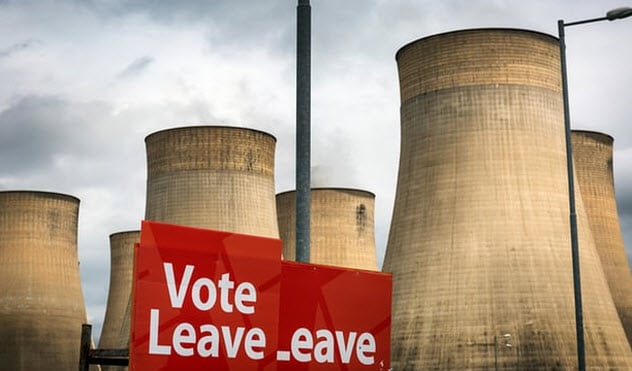
Oh, look. More instability for Theresa May’s wobbly government. In a week when the UK prime minister lost her second significant vote on Brexit (relating to medicine) and came within just six votes of losing two others, yet another political grenade was lobbed into the process. On Tuesday, the Electoral Commission ended their investigation into the official Vote Leave campaign’s spending during the Brexit referendum. They concluded that the group had broken UK electoral law.
Campaign spending limits in the UK are set relatively low. The commission found that Vote Leave had circumnavigated these by illegally coordinating with BeLeave, the unofficial pro-Brexit campaign. Vote Leave has now been issued a record fine of £61,000 and referred to the police. The Met will investigate whether other offenses were committed during the referendum campaign.
The referral is just the latest in a series of destabilizing Brexit-related problems that May’s government is facing. With no majority in parliament and both pro- and anti-EU rebels within her own party, the prime minister is now also having to deal with an investigation that could undermine the entire vote.[2]
8 We Officially Entered A New Geological Age

Welcome to the Meghalayan Age! You didn’t know it, but you’ve been chilling out here for the last 4,200 years. At least, that’s what the International Commission on Stratigraphy (ICS)—the official gatekeepers of geological time—have now decided. On Wednesday, the ICS formally approved an idea, first proposed in 2012, to subdivide our Holocene Epoch into three separate chunks. Their ruling will now be applied across most of the world.
Geological ages are applied when something happened in the past that was so big and so global that it left traces in the sediment record across the planet. The Holocene started 11,700 years ago with the end of the last ice age. Now the ICS is saying that Stage 3 of the Holocene—the Meghalayan—began with a period of dramatic droughts that collapsed civilizations across the ancient world.
But wait! Not everything’s so clear-cut. Some geologists are upset with the ICS for accepting the Meghalayan without proving that it was truly global. Additionally, Anthropocene supporters, who claim that the burning of fossil fuels by humans created a new epoch, have criticized the Meghalayan decision for stepping on their turf.[3]
7 Google Was Hit By A Record-Breaking Antitrust Fine

Everyone knew it was coming, but the numbers involved were still eye-opening. This week, Google was hit by a record-breaking antitrust fine by the EU, totaling €4.3 billion ($5.1 billion). Aside from being painful for Google, the fine acted as an ominous potential warning of things to come.
The reason for the fine can be boiled down simply: Over the last few years, the EU has been tightening its regulations on the tech sector and Google’s Android software for mobile devices ran afoul of them. Google ignored repeated warnings to stop forcing manufacturers to install Chrome on their Android devices and to stop blocking the use of “forked” Android devices. Google now has 90 days to fix these issues or face yet more legal trouble from Brussels.
Those are the basic facts. Now for the troubling part. Wired has an excellent article arguing that the divergence between US and EU tech regulations may lead to a Balkanization of the online world.[4] To avoid legal trouble, Google may have to break into two Googles, Amazon into two Amazons, and so on. For businesses and consumers used to trading digitally across borders, this could be hugely damaging.
6 Albania Finally Authorized A Search For Victims Of Its Communist Regime

Between 1944 and 1990, Albania was under one of the most oppressive communist regimes in history. Enver Hoxha’s Stalinist government completely cut the country off from the outside world, set up a vast gulag network, and kept the entire population in a state of emergency for a nuclear attack that never came. Pre-democracy Albania has been compared to North Korea, with all the human rights abuses that implies.
But while most Eastern Bloc nations have tried to come to terms with their communist past, Albania has been remarkably reticent. Thousands of people remain missing, and many of the tens of thousands killed or worked to death by the regime are buried in forgotten mass graves. Hopefully not for much longer. On Wednesday, after years of stalling, the Albanian government finally signed an agreement authorizing a search for the missing and the dead.[5]
The International Commission on Missing Persons (ICMP) will now began tracking down Hoxha’s victims with the aid of an EU fund recently set up for that purpose. Survivors remain cynical that the project will disappear into a vortex of corruption and politicking.
5 Sacha Baron Cohen’s New Show Caused Uproar

In our hyper-connected world, it’s extraordinary to be able to keep anything secret for long, let alone a new show by the guy behind 2006’s smash hit Borat. For that reason alone, the arrival of Sacha Baron Cohen’s Who Is America? on Showtime last Sunday was impressive.
Right up until the last moment, no one knew it even existed. Then suddenly, a teaser dropped, followed by a stream of politicians who’d been hoaxed publicly denouncing the show. Inevitably, all this complaining turned the premiere into a bona fide cultural event.
So, that’s Who Is America?, the cultural phenomenon of the week. But what about Who Is America?, the actual show? That probably depends on whom you talk to. While some outlets praised its absurdity, others utterly panned it.[6]
One of the main complaints was that the show was catnip for liberals, with the longest segment focused on mocking gun rights advocates. (To be fair to Cohen, another sketch mocked “woke” liberals who apologize for being white and straight.) It’ll be interesting to see if the show keeps up its notoriety in the coming weeks.
4 Haiti’s Government Resigned Amid Mass Protests
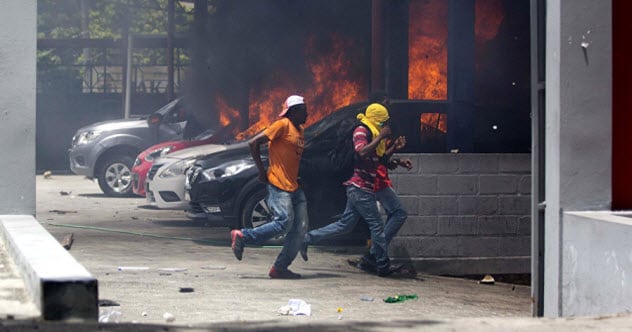
Two Fridays ago as Brazil played Belgium at the World Cup, the government of Haiti quietly dropped fuel subsidies that had been in place since the devastating 2010 earthquake. Within five minutes of the game ending, barricades were going up all over the country. Port-au-Prince was gridlocked as Haitians took to the streets in the biggest demonstrations in years.
Last Saturday, those demonstrations finally toppled the government. Prime Minister Jack Guy Lafontant resigned, taking his cabinet with him. One of their last acts was to cancel the fuel price rises. The Haitian president will now appoint a new PM.[7]
The protests were notable for being somewhat attributable to the IMF, which authorized a loan to Haiti’s government on the condition that they end the fuel subsidies. But they were also a sign of how fed up the population has become with their government. Over 80 percent of Haitians live on less than $2 a day each, corruption is endemic, and recent elections have been marred by violence and voter suppression. It may well be that we’ll see more mass protests in Haiti soon.
3 Iran Sued The United States In International Court
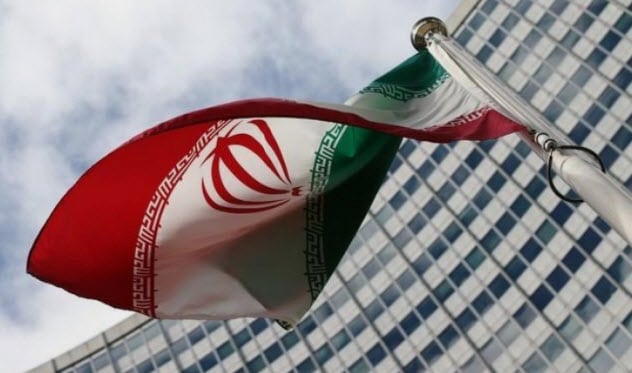
A couple of months ago, President Trump pulled the US out of the Joint Comprehensive Plan of Action (JCPOA), also known as the 2015 Iran nuclear deal. The ramifications are still being felt on the international stage, in some cases in very unexpected ways.
This week’s development was one such example. On Tuesday, Tehran filed a lawsuit against Washington in the International Court of Justice (ICJ) at The Hague, claiming that the reimposition of sanctions violated a 1955 treaty between the two nations.
The ICJ is the highest court of the United Nations. Unlike the International Criminal Court (ICC), the US is a member of the ICJ and technically bound to abide by its rulings. We say “technically” because the US has occasionally ignored previous rulings and the ICJ has no formal mechanism to punish member states that disobey it.[8]
Still, the Iran lawsuit may not even get to that stage. In the coming months, the ICJ will decide whether to issue a provisional ruling or just drop the case altogether.
2 Israel Enacted A Controversial Jewish Nation-State Law

Early this Thursday, Israel’s Knesset officially passed one of the most controversial laws its members have ever voted on. The “Jewish Nation-State” law defines Israel as the national homeland of the Jewish people and an undivided Jerusalem as its capital. The real sticking point, though, was a clause that made Hebrew the official language of Israel. For Israel’s Arab lawmakers, the bill amounted to making them second-class citizens.
After the bill was passed, some Arab lawmakers tore up copies and barraged Benjamin Netanyahu with cries of “racist!” However, it’s worth pointing out that not everyone agrees. The bill doesn’t downgrade Arabic so much as elevate Hebrew. Some Arab-Israelis came out in support of the bill, including some (such as one writer in Haaretz) who usually place themselves against the PM.[9]
It’s worth noting, too, that the version of the bill passed is far less controversial than the one proposed. One earlier version sought to force the Supreme Court to consider Israel’s Jewish character as above its democratic one, while another would have paved the way for segregated religious communities. Both clauses were killed earlier in the week.
1 The US Indicted 12 Russians For Election Meddling
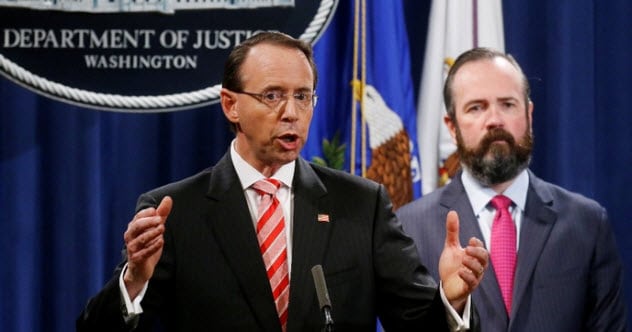
And we’re right back around to Russia again. Last Friday, the office of Special Counsel Robert Mueller made a bombshell announcement. Twelve Russian officials had now been indicted in absentia for meddling in the 2016 election. The indictment itself included names, addresses, and details on sophisticated phishing and hacking operations, painting a picture of a well-orchestrated conspiracy at the heart of Russia’s GRU intelligence agency.
Importantly, the indictment did not contain any evidence or allegations of collusion on the part of American citizens. Deputy Attorney General Rod Rosenstein also noted that these tactics did not sway the election’s outcome. However, they were still shocking in that they portrayed a concerted Russian effort to undermine American democracy.[10]
The DOJ’s national security unit will now take over the indictments, although it’s extremely unlikely that any of the 12 individuals named will ever face anything beyond US sanctions. Still, with data on half a million voters seemingly stolen, voter software hacked, and local election officials targeted, it’s starting to look like 2018’s midterms could be the next big flashpoint in the great Russian hacking saga.








